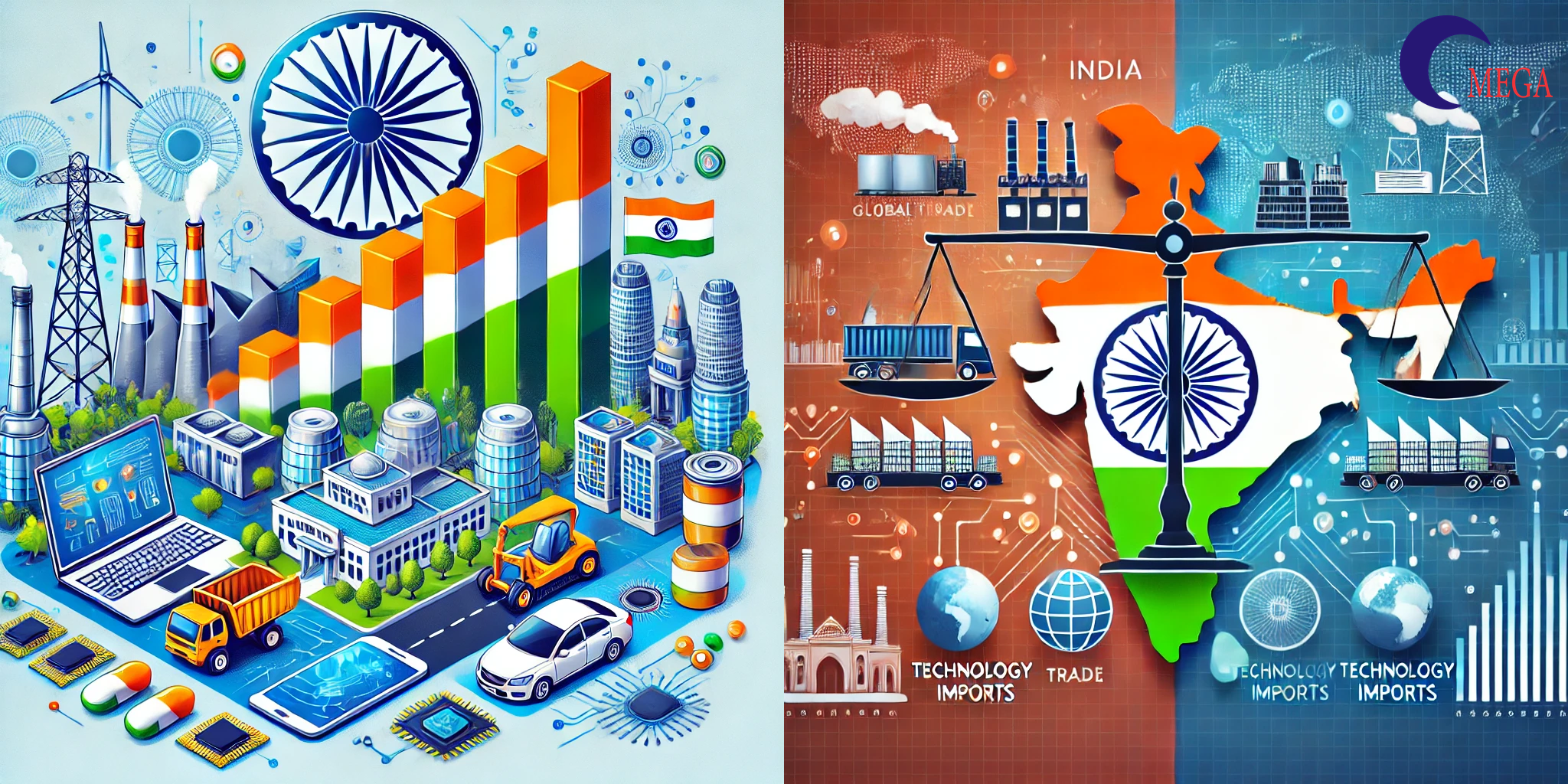India’s Journey with QCOs and PLI to Promote ‘Make in India’: Success So Far
Introduction
India’s ambitious “Make in India” initiative has aimed to transform the country into a global manufacturing hub. To achieve this, the government has introduced several measures, including the implementation of Quality Control Orders (QCOs) and the Production Linked Incentive (PLI) Scheme. These frameworks are designed to ensure product quality, reduce dependence on imports, and encourage domestic manufacturing.
Quality Control Orders (QCOs)
What are QCOs? QCOs mandate adherence to strict product quality standards for goods manufactured or imported into India. This initiative aims to:
- Protect consumer interests by ensuring high product quality.
- Enhance India’s reputation as a supplier of globally competitive goods.
- Reduce the influx of substandard imports.
Impact of QCOs:
Positive Outcomes:
- Significant improvement in product safety and reliability.
- Domestic manufacturers benefit from a level playing field as low-quality imports are curtailed.
Challenges:
- Increased compliance costs for businesses.
- Limited infrastructure and awareness among small-scale industries.
Production Linked Incentive (PLI) Scheme
What is the PLI Scheme? Introduced in 2020, the PLI scheme incentivizes companies to increase domestic manufacturing by linking financial rewards to production targets. Key industries under this scheme include:
- Electronics and IT hardware
- Automobiles and auto components
- Pharmaceuticals
- Solar modules
- Textiles
Impact of the PLI Scheme:
Positive Outcomes:
- Attracted significant foreign and domestic investments.
- Boosted India’s export competitiveness.
- Created employment opportunities across key sectors.
Challenges:
- Complex application and approval processes.
- Delays in fund disbursements for some sectors.
Sector-Specific Impact
- Electronics and IT Hardware
Progress: India is now the second-largest mobile phone manufacturer globally.
PLI Benefits:
- Major players like Apple, Samsung, and local manufacturers have expanded production facilities in India.
- Increased exports of electronics, particularly smartphones.
Challenges:
- Heavy reliance on imported components such as semiconductors.
- Automobiles and Auto Components
Progress:
- Growth in electric vehicle (EV) manufacturing under the PLI scheme.
- Expansion of domestic capabilities in auto components production.
Challenges:
Supply chain issues due to global semiconductor shortages.
- Textiles
Progress:
- Revival of India’s textile industry with incentives for man-made fibers and technical textiles.
- Increased investments in textile parks.
Challenges:
- Competition from countries like Bangladesh and Vietnam.
- Need for innovation in high-value products.
- Pharmaceuticals
Progress:
- Enhanced domestic production of critical APIs (Active Pharmaceutical Ingredients).
- Reduced dependence on Chinese imports.
Challenges:
- Limited capacity to meet global demand for advanced formulations.
Achievements So Far
- Growth in Domestic Manufacturing:
- Electronics manufacturing has seen a significant surge, with India becoming the second-largest mobile phone manufacturer globally.
- Enhanced Exports:
- PLI-supported sectors like textiles and electronics have witnessed steady export growth.
- Reduced Import Dependency:
- QCOs have minimized reliance on low-quality imports, particularly in key sectors like chemicals and electronics.
Challenges Ahead
Infrastructure and Policy Gaps: Manufacturing infrastructure needs further improvement to support scaling.
Global Competition: India still faces stiff competition from countries like China and Vietnam.
Awareness and Inclusivity: MSMEs require more support to align with QCO and PLI requirements.
Conclusion with Data Insights
India’s journey with QCOs and the PLI scheme has made commendable progress in promoting the “Make in India” vision. While challenges remain, the combined effect of these initiatives is driving the country toward self-reliance and global competitiveness. Continued focus on improving infrastructure, simplifying policies, and supporting MSMEs will be critical to sustaining and accelerating this progress.
Data Insights
- Jobs Created:
- Over 2 million jobs generated across PLI sectors.
- Investments Attracted:
- Nearly ₹3 lakh crore of investments across industries.
- Export Growth:
- Electronics exports grew by 40% in 2023, driven by smartphone production.
Omega QMS Pvt. Ltd. is committed to supporting manufacturers in navigating these regulatory challenges, ensuring compliance, and mitigating disruptions. Contact us for expert guidance!


For your Certification needs pls contact:
OMEGA QMS PVT. LTD.
908-909, Hemkunt House, Rajendra Place, New Delhi-110008, India
Email: info@globalomega.com, Phone: 011-41413939(100 lines)
sales@globalomega.com, mktg@globalomega.com

Leave a Reply